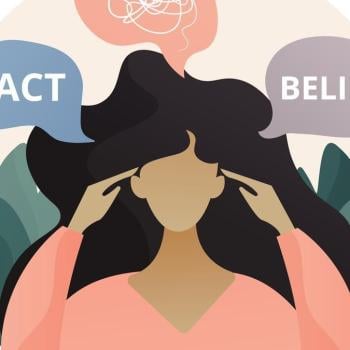
Someone I respect once said: ‘If you want to know which direction your life is going in, look at the things you do every day’.
You know when a single sentence cuts through all the noise and speaks straight to your heart? It was one of those moments, reframing the whole concept of personal discipline as empowerment rather than an obligation.
I’m not a naturally disciplined person. I have a creative mind, tend towards pleasure, and like to go with the flow. Like all behavioural styles, this has its advantages and disadvantages. On the plus side I have a lot of fun and tend to inspire the same in others, but on the downside I can miss the opportunities that deliberate, regular disciplines offer.
As a child it was drummed into me that I should be disciplined in the practice of faith. There was even a Sunday School song about it – ‘Read your Bible pray every day if you want to grow’. As a creative, free-thinking kind of person I reacted against that, considering such discipline a voluntary prison and an impediment to personal expression.
Reframing personal discipline as a chance to steer my life in the direction of my choosing helped me see things in a new light. First of all, it brought home to me that bad habits are also a form of personal discipline, in the sense that they shape our lives and prophesy our destinies.
Many of life’s pleasures are damaging to the body, but if only enjoyed occasionally that’s no big deal. It’s important to celebrate life, and every culture under the sun enjoys times of feasting to commemorate important events, for example. Occasional indulgences serve a purpose of their own, and should not be shunned lest we make life a drudgery, but if those pleasures become daily habits, we embrace self-harm.
There are certain common habits that are generally accepted as harmful – overeating, unhealthy eating, too much alcohol, etc. But what about other, more pernicious habits, the effects of which are not yet fully accepted? Distraction has become a major problem. I went through a phase of playing games on my smart phone. I thought my usage was harmless enough, as I always put my phone away when talking to people, but given a quiet moment, or the commercial break in a favourite TV program, my phone would be in my hand and I’d be stabbing away at the screen without making the conscious choice to pick it up.
The effect of this was to eradicate silence and repose from much of my life. We all need windows of quietness and reflection. Silence is challenging, as in those spaces we begin to think, to question, to assess, and ultimately to make decisions. Given the endless opportunity for constant, petty distraction that modern life provides, we can rob ourselves of the healthy rhythms of cognition and awareness.
Sometimes I’d listen to a podcast and play a game at the same time, thinking it made no difference, but in reality my attention was divided, and what I took from the podcasts was diminished. Distraction comes in many forms – TV, social media, and manufactured domestic chaos among them. If this is a feature of our lives, our growth and happiness is directly impacted.
What about you? What damaging habits do you repeat every day, or most days? These are currently determining your destiny, along with the quality and perhaps even the length of your life.
The flip side is positive and exciting. Adopting new daily habits is a way to take charge of the direction of your life. One of the joys of good habits is that they deliver measurable rewards. For example, taking a daily walk that raises your heart rate for 20 minutes or so releases endorphins and dopamine – natural bodily chemicals that produce feelings of happiness. I used to live a sedentary life, and found my body sluggish and toxic, but introducing daily exercise made a huge difference. I found that while walking I feel great and gain a kind of clarity that helps me make good decisions and gain creative and spiritual inspiration.
Eating a balanced diet is much the same. Modern, Western culture can be rushed and pressured, leading to consumption of fast foods that clog the system and increase toxicity. In turn, this has an impact on mental health and wellbeing. Making small, manageable adjustments in these areas is one of the most significant changes a person can make on the journey towards satisfaction.
And what of spirituality? Our connection with God can be a paddle in the shallows or a dive into the deeps of the River of Life. God always desires closeness with us, and for each of us to know his love in more wonderful, transformative ways, but whether or not we walk with him is a choice. There is no lack of willingness on his part. Hebrews 11:1-6,
‘Now faith is the substance of things hoped for, the evidence of things not seen…without faith it is impossible to please Him, for he who comes to God must believe that He is, and that He is a rewarder of those who diligently seek Him.’
That God ‘is a rewarder of those who diligently seek him’ is a promise I’ve clung to all my adult life, which has led to tremendous breakthroughs, personal healing, and deep spiritual experience of divine love. God does not change, has no favourites, and can be utterly trusted to keep up his end of the deal.
If God is willing, the rest flows from our response. Psalm 1:1-3,
‘Blessed is the man
Who walks not in the counsel of the ungodly,
Nor stands in the path of sinners,
Nor sits in the seat of the scornful;
But his delight is in the law of the Lord,
And in His law he meditates day and night.
He shall be like a tree
Planted by the rivers of water,
That brings forth its fruit in its season,
Whose leaf also shall not wither;
And whatever he does shall prosper.’
There are many important discussions going on around the periphery of the Christian faith – questions that need asking about stuff we’re busy working out, such as how to interpret the Bible after de/re-construction, diversity and inclusion in the church, gender and sexuality in a Christian context, and many other matters. But if the practice of faith is replaced with an endless battle over contested territory, we starve ourselves of spiritual nourishment.
If all you do is read and/or comment on article after article about matters that are divisive, but fail to cling to the pillars of a life of faith, we fellowship with controversy and doubt without a balancing force.
Don’t get me wrong – I love a good discussion and I have an enquiring mind, but I also recognise the essential value of spending time in God’s presence and meditating on the word. Just like many of my readers, I have questions, and am not afraid to challenge ideas that have been accepted in the Church for decades if not centuries, but it is far more important to spend time with God and draw strength from the word.
It is important to question assumptions about the Bible in order to understand it better, but that does not mean we need to put all engagement with the word on hold. If you want to be like the tree planted by the rivers of water, bringing forth its fruit in season, whose leaf doesn’t wither, blessed and prospered by God in your endeavours, stick with the word, even as you put it to the question. Don’t drift; walk closely and deliberately with Love.
Further Resources for Study and Discipleship
For readers who want to delve into other teachings of mine, I’ve written four spiritual books under the pseudonym James Bewley (to avoid cross-pollination of my fantasy/sci-fi and spiritual readerships), linked below:
Who Am I to Judge examines the nature of judgement and its pivotal role in ‘the fall’. I examine the nature of judgement, including divine judgement, and lay out strategies for personal freedom.
How to Know God is the story of my own journey from spiritual emptiness to the experience of daily divine encounters, before addressing what I believe are the keys to spiritual abundance.
Job: A Story of Salvation goes through the book of Job chapter by chapter, demonstrating that the Church has made a colossally consequential error in its interpretation of Job. I examine the results of that error, the poor theology that stems from it, and the joy and peace found when we shed this deception and move into freedom.
How to Meet God is a short work written for those who are yet to know God. It’s essentially a tract that I know has resulted in salvation for some.
I trust you will get what you need from these writings, and am always happy to discuss any questions arising from them.












